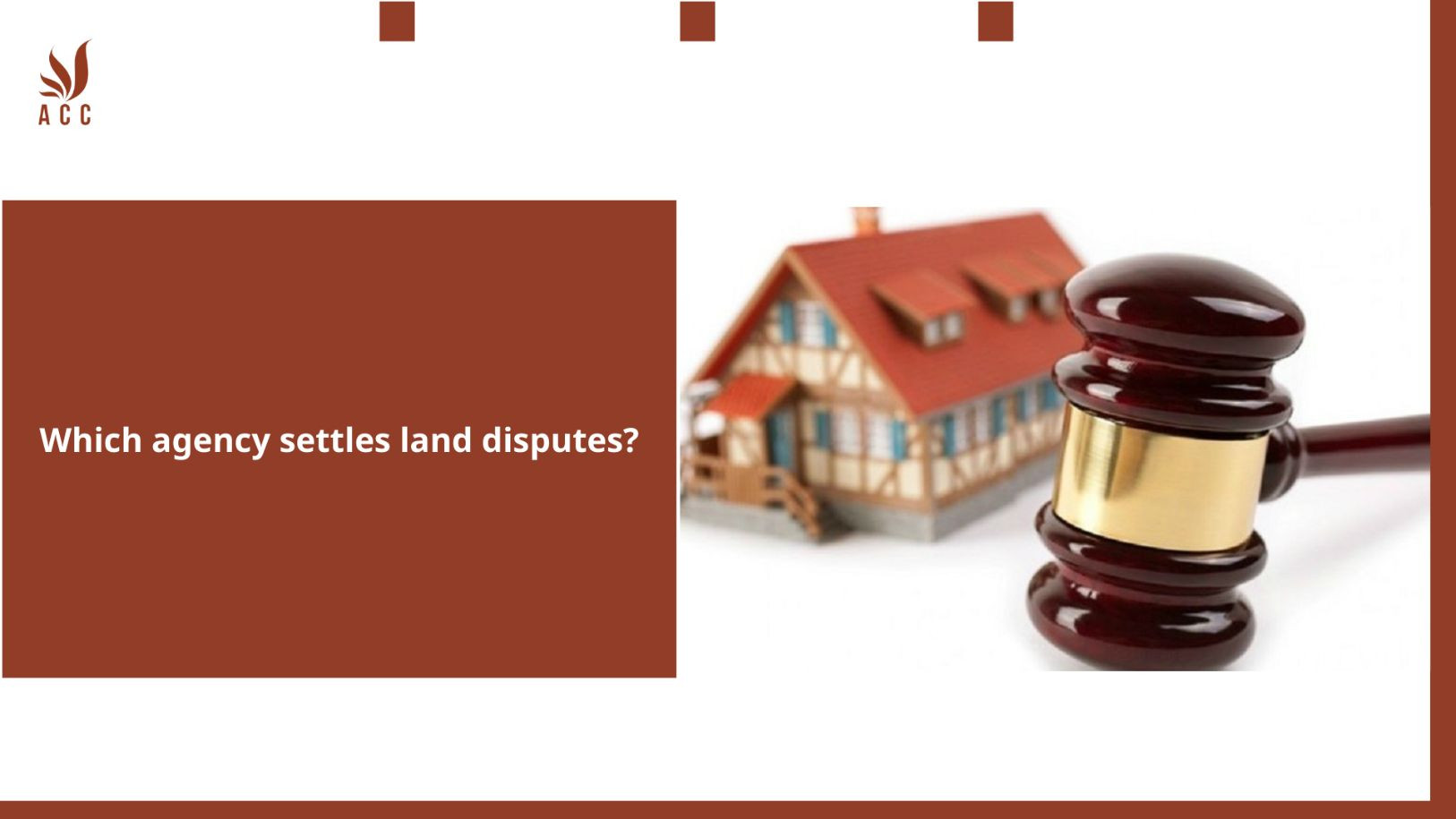The agency responsible for settling land disputes can vary by country and jurisdiction. In many countries, land disputes are addressed through a combination of legal processes and government agencies. Here are some common agencies and methods for settling land disputes:

1. Courts:
Land disputes may be resolved through the judicial system, with parties involved in the dispute presenting their cases before a court. The court will then make a legal judgment based on the evidence and applicable land laws.
2. Land Court:
In some jurisdictions, there are specialized Land Courts or Land Tribunals that specifically handle land-related cases, including disputes over property rights, boundaries, and ownership.
3. Mediation and Arbitration:
Parties in a land dispute may choose to resolve their issues through mediation or arbitration. This can be a faster and less formal alternative to going to court, with a neutral third party helping to facilitate an agreement.
4. Government Land Agencies:
Government agencies responsible for land management and administration may have dispute resolution mechanisms. For example, a local land office or department may offer mediation or assistance in resolving land-related conflicts.
5. Community or Customary Authorities:
In some regions, especially in rural areas, traditional or customary authorities may have a role in mediating and settling land disputes based on local customs and traditions.
6. When using ACC Law Firm's land-related services, entrepreneurs will receive
When using ACC Law Firm's land-related services, entrepreneurs will receive expert advice and assistance in navigating various legal aspects of land ownership and transactions. This includes guidance in property acquisitions, leases, zoning regulations, land use planning, and any other land-related legal matters. ACC Law Firm's team of experienced attorneys will provide personalized support to entrepreneurs, ensuring compliance with applicable laws and regulations, protecting property rights, and optimizing the value of their land investments.
7. Q&A
Question 1: Which agency is responsible for settling land disputes in most countries?
Answer 1: In many countries, land disputes are typically resolved through the legal system, with courts playing a central role in settling disputes related to land ownership, boundaries, and land-use rights. Depending on the jurisdiction, these disputes may be heard in various types of courts, such as civil courts, land courts, or specialized land dispute resolution tribunals.
Question 2: Are there alternative dispute resolution methods for settling land disputes?
Answer 2: Yes, alternative dispute resolution (ADR) methods, such as mediation and arbitration, are often used to settle land disputes outside of the court system. Mediation involves a neutral third party helping the disputing parties reach a mutually acceptable resolution. Arbitration involves an arbitrator making a binding decision on the dispute. Many countries offer ADR as an option to expedite and reduce the costs of resolving land disputes.
Question 3: Do land disputes ever involve government agencies?
Answer 3: Yes, land disputes can sometimes involve government agencies, particularly in cases where the dispute relates to issues like land acquisition for public projects, land zoning and usage changes, or land registration errors. In such cases, government agencies responsible for land administration may play a role in resolving the disputes.
Question 4: How can individuals initiate the process of settling a land dispute?
Answer 4: Individuals seeking to settle a land dispute can typically initiate the process by taking the following steps:
- Consult an attorney or legal advisor for guidance on the specific dispute.
- Attempt to negotiate a resolution with the other party through direct communication.
- Consider mediation or arbitration as alternative dispute resolution methods.
- If necessary, file a legal claim in the appropriate court or land dispute resolution tribunal, presenting evidence and legal arguments for a decision.
Nội dung bài viết:






Bình luận